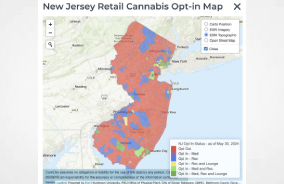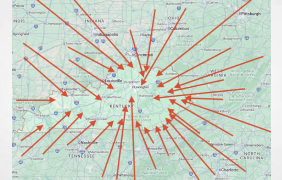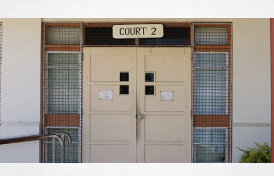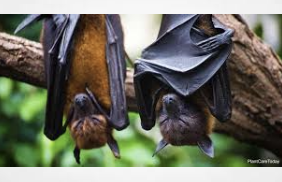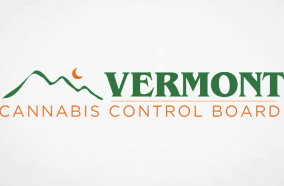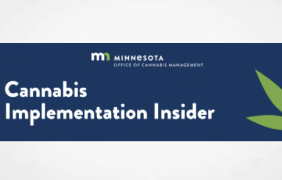Pre-Roll published By Blunt Strategies Consultancy MN – published the following 17 December 2024, it’s got plenty of detail if you want to dive into it.
These guys publish a paid sub newsletter – details at the link
The Minnesota Office of Cannabis Management (OCM) announced last week that it is abandoning the social equity license preapproval process and will be moving directly to the first standard licensing cycle for social equity and general applicants starting in early 2025. OCM released the following timeline for that upcoming licensing cycle, the details of which we delve into below:
Per the OCM, this decision follows a court-ordered stay on the preapproval lottery, creating delays and disrupting the intended early-mover advantage for social equity applicants.
Here’s a clear breakdown of what this means for applicants in different situations and what to expect moving forward:
1. For Applicants Accepted Into the Preapproval Lottery
If you were among the 648 applicants who qualified for the license preapproval lottery:
- Your application automatically moves forward into the new standard licensing process set to begin on February 18, 2025. If you wish to withdraw your application for any reason, you must do so by January 10, 2025 in order to receive a refund of your application fee.
- If you applied for uncapped license types (such as microbusinesses), you will not be subject to another lottery. Instead, you’ll proceed through the licensing steps as soon as OCM finalizes rulemaking. These steps include:
- Submitting a labor peace agreement attestation.
- Completing a background check.
- Securing property and obtaining local approvals.
- This streamlined process means applicants for uncapped licenses may begin operations as early as spring 2025 if they complete all requirements.
- If you were an applicant for a capped license types (like retail licenses), your application will automatically enter the standard licensing cycle’s social equity lottery, anticipated to be held in May or June of 2025. If unsuccessful in that round, your application will then be entered into the general lottery to be held shortly after the social equity lottery.
2. For Applicants Rejected in the Preapproval Process
If your application for license preapproval was denied:
- You will have the opportunity to resubmit your application during the standard licensing cycle, which opens on February 18, 2025 and ends March 14, 2025. Applicants who choose not to move forward in the next licensing cycle can request a refund of their application fee by January 10, 2025.
- To assist applicants, OCM will issue a Request for More Information (RFMI) in February. This process will allow applicants to correct errors or provide additional documentation that may have been lacking in the initial submission.
- If you are an applicant for a capped license type and your re-submitted application is accepted, you will entered into the standard licensing cycle’s social equity lottery, anticipated to be held in May or June of 2025. If unsuccessful in that round, your application will then be entered into the general lottery to be held shortly after the social equity lottery.
- If you are an applicant for an uncapped license type and your re-submitted application is accepted, we are still waiting on additional details from OCM as to the timeline and process by which your application will be handled.
3. For Those Who Didn’t Apply for Preapproval
If you did not apply for preapproval:
- You can still participate in the upcoming standard licensing process. Applications for both social equity and general applicants will be open from February 18 to March 14, 2025.
- Social equity applicants must verify their eligibility during a verification window, which runs from January 15 to January 30, 2025.
- If you are verified as a social equity applicant and your license application for a capped license type is accepted, you will entered into the standard licensing cycle’s social equity lottery, anticipated to be held in May or June of 2025. If unsuccessful in that round, your application will then be entered into the general lottery to be held shortly after the social equity lottery.
- If you are verified as a social equity applicant and your license application for a uncapped license type is accepted, we are still waiting on additional details from OCM as to the timeline and process by which your application will be handled.
- If you are not a verified as a social equity applicant and your license application for a capped license type is accepted, you will entered into the standard licensing cycle’s general lottery, anticipated to be held in May or June of 2025 shortly after the social equity lottery.
- If you are not a verified as a social equity applicant and your license application for a uncapped license type is accepted, we are still waiting on additional details from OCM as to the timeline and process by which your application will be handled.
Expert Commentary: Fast-Tracking Microbusinesses Is a Big Win for Social Equity
In the wake of OCM’s decision to abandon the pre-approval process and move toward standard licensing, the implications for microbusinesses and other uncapped license applicants are significant. Cannabis attorney and Cannabis Advisory Council member Carol Moss offers her perspective on why this outcome is a major step forward for positioning microbusinesses to secure prime retail locations ahead of larger competitors, and what it means for building the foundation of Minnesota’s craft cannabis industry.
The latest updates from the Office of Cannabis Management (OCM) signal a significant win for applicants pursuing uncapped license types, particularly microbusinesses. Of the 648 pre-approval lottery applicants, about 200 were for uncapped licenses, and 193 of those were microbusinesses. These applicants are now positioned to move straight into preliminary licensing as soon as rulemaking wraps up, putting them on track to secure final site approval as early as spring 2025.
This is an excellent outcome for microbusinesses and other uncapped license applicants. It not only fast-tracks those who qualified in the pre-approval round but also creates a clear pathway for those who were denied to cure their applications during the February Request for More Information (RFMI) process. Importantly, this step should insulate uncapped licenses from ongoing or future litigation surrounding lottery entry for capped licenses, providing much-needed certainty for small businesses aiming to enter the market.
The advantages for social equity microbusinesses go even further. Most cities have implemented caps on the number of dispensaries allowed within their jurisdictions, and many will allocate licenses on a first-come, first-serve basis. By moving ahead of mezzobusinesses and retail applicants in the licensing process, microbusinesses will have a clear head start in securing prime locations for their stores. This early access to high-traffic areas could make all the difference in positioning these businesses for success.
More importantly, microbusiness licenses are far more likely to be held by local, small businesses compared to larger applicants vying for mezzobusiness or retail licenses. This creates an opportunity to lay the foundation for a thriving craft cannabis industry in Minnesota, led by social equity applicants—the very group legalization was designed to uplift. For these small businesses, early site approval and operational readiness are critical to establishing a foothold in the market before bigger players enter the fray.
While the road has been bumpy, this scenario reflects a critical step toward achieving one of the core goals of legalization: ensuring that social equity applicants, particularly those running local and craft-focused operations, are set up to thrive in Minnesota’s emerging cannabis industry.
Legal Challenges from Both Sides: What’s Happened & What Might Be Next
The Lawsuits That Halted the Lottery
According to OCM, the decision to abandon the pre-approval process stems directly from a stay issued last month the day before the preapproval lottery was scheduled to take place by a Ramsey County District Court judge in response to several lawsuits filed by applicants whose applications for pre-approval were rejected. The plaintiffs in these lawsuits fall into two broad categories:
- Good-Faith Applicants and Technical and Procedural Errors: Some plaintiffs claimed they were unfairly denied pre-approval due to minor or technical mistakes, such as incomplete documentation or formatting issues, which they argue could have been corrected if given the opportunity. These applicants allege that OCM’s process lacked transparency and failed to provide sufficient opportunities to cure deficiencies—a procedural gap they believe should have been rectified.
- Bad-Faith Applicants and “Straw Applications”: On the other end of the spectrum, OCM identified applications that allegedly violated the rules against duplicate submissions or breached “true party of interest” requirements. These cases point to bad actors attempting to game the system by submitting multiple straw applications or hiding ownership information to gain an unfair advantage.
Plaintiffs from both categories sought a Temporary Restraining Order (TRO) to prevent the pre-approval lottery from proceeding. However, during a hearing held the day before the scheduled lottery, the district court judge declined to issue the TRO because, as clearly stated in statute, OCM’s preapproval decisions are non-appealable, meaning the court lacked subject matter jurisdiction to determine whether OCM acted improperly in excluding the plaintiffs from the lottery.
Instead, the judge issued a stay—a temporary pause on the pre-approval process—to give the plaintiffs time to file their challenges with the Court of Appeals.
Challenges to the Stay from Lottery-Approved Applicants
Hours before OCM announced its decision to abandon preapproval, a group of applicants accepted for the preapproval lottery filed a petition with the Court of Appeals arguing that the district court lacked the jurisdiction to issue the stay in the first place and asking for that stay to be lifted.
To expedite a resolution, this group also filed a motion for expedited consideration last Friday. Their goal is to secure a ruling that clears the legal path for the pre-approval lottery to proceed. While their petition does not compel OCM to act, a favorable ruling could allow these applicants to pursue additional legal remedies seeking to force OCM to hold the preapproval lottery.
Other Tidbits to Note:
- One lingering question is why OCM itself did not challenge the stay, given its shaky legal footing and the agency’s continued defense of its preapproval process. The answer may lie in political direction from Governor Tim Walz. In an interview last week, Walz suggested that he may have instructed OCM not to contest the stay, telling them to “go on the normal time frame” instead. In other words, rather than prolonging the legal fight, the Governor directed OCM to abandon pre-approval and pivot to the standard licensing cycle beginning in early 2025 .
- When the lawsuits seeking to halt the preapproval lottery were first filed, we argued that it was a strategic misstep for the good-faith applicants whose applications had been rejected that risked leaving those applicants in an even worse position. Specifically, we warned that if a court or OCM ultimately decided to abandon the preapproval process, it would:
- Undermine Social Equity Applicants in Capped License Types: By eliminating the pre-approval lottery, the ~400 applicants approved for preapproval in capped license categories—such as retail licenses—would be thrown back into the same licensing pool as rejected applicants and entirely new applicants who had not applied for preapproval at all. This decision would increase competition for capped licenses in the first licensing round, reducing the chances of success for all social equity applicants.
- Delay Early Cultivation and Market Readiness: Scrapping preapproval would significantly delay critical early cultivation, which is essential to ensure a stable and sufficient product supply at market launch. Without this early cultivation, the resulting delays would ripple across the industry, increasing the likelihood of:
- Empty dispensary shelves.
- Weakened market momentum.
- Eroded consumer confidence.
These disruptions harm all applicants, but small businesses and social equity applicants—who rely on predictable timelines to plan, prepare, and compete—would bear the brunt of the fallout.
- Weaken True Party of Interest Safeguards: By shifting to the broader licensing process, OCM could face increased challenges to identifying and eliminating bad-faith actors. The preapproval process was designed to rigorously vet applicants and enforce true party of interest rules, which prevent sham applicants and concealed ownership structures. Without preapproval as a gatekeeping mechanism, the broader licensing round becomes far more vulnerable to manipulation and exploitation by those seeking to circumvent the rules.
- Create a Poor Narrative Heading Into the Legislative Session: The lawsuits, the stay, and the subsequent abandonment of preapproval risk fueling a damaging perception that Minnesota’s cannabis licensing process is unworkable. This false narrative could embolden bad-faith actors to push for harmful legislative changes, such as weakening social equity protections and true party of interest laws. If left unchecked, these efforts could undermine the very goals of legalization—an equitable, sustainable, and locally-driven cannabis market.
Well, now that OCM has scrapped pre-approval, it seems those plaintiffs have finally landed on the same conclusion—though their regret is curiously expressed as frustration with OCM for doing exactly what they asked the court to force them to do.
We’ll be back here in 2025, continuing to track developments, hold decision-makers accountable, and advocate for the fair and equitable cannabis industry Minnesota was promised. Until then, take a deep breath and a well-earned pause—next year promises to be a big one.
The Pre-Roll is a reader-supported publication. To receive new posts, sign up as a free or paid subscriber.


